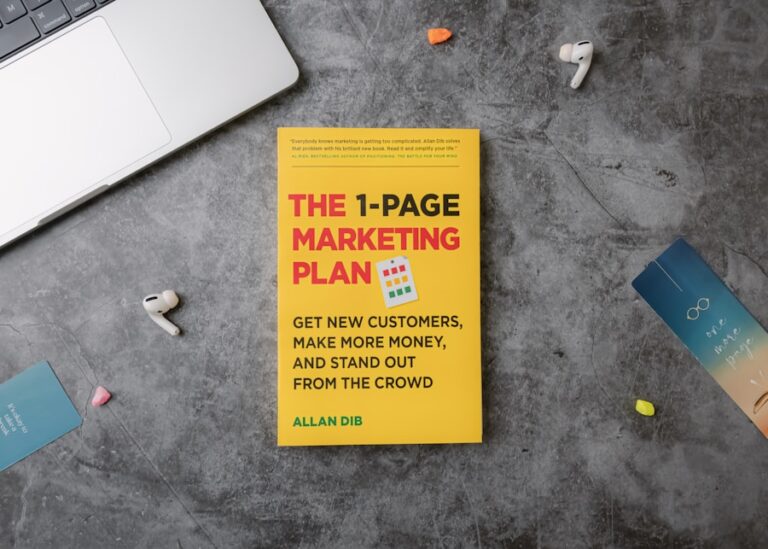Self-publishing has undergone a remarkable evolution over the past decade, transforming from a niche market to a mainstream avenue for authors to share their work with the world. The digital landscape has played a pivotal role in this evolution, offering authors unprecedented access to global audiences and empowering them to take control of their publishing journey. One of the most significant trends in self-publishing is the increasing emphasis on quality and professionalism.
As the market becomes more crowded, authors are recognizing the importance of producing high-quality content that rivals traditionally published books. This shift has elevated the standards of self-published works, earning them greater respect and recognition in the literary world. Furthermore, the rise of hybrid publishing models has blurred the lines between traditional and self-publishing, offering authors the best of both worlds.
These models provide access to professional editing, design, and distribution services while allowing authors to retain creative control and a higher percentage of royalties. Additionally, the democratization of publishing through digital platforms has enabled diverse voices and stories to reach readers, challenging the homogeneity of traditional publishing. As we look ahead to 2025, the self-publishing landscape is poised to continue evolving, driven by technological advancements and changing reader preferences.
Leveraging Technology: Tools and Platforms for Self-Publishing Success in 2025
Streamlined Writing and Editing
Writing and editing software have become more intuitive and collaborative, allowing authors to seamlessly craft and refine their manuscripts. From grammar-checking algorithms to cloud-based writing platforms, technology has simplified the writing process while maintaining high standards of language and style.
Global Distribution and AI-Powered Solutions
Self-publishing platforms such as Amazon Kindle Direct Publishing (KDP), Apple Books, and Kobo Writing Life have become instrumental in enabling authors to distribute their e-books globally with ease. The emergence of artificial intelligence (AI) has also revolutionized the self-publishing landscape, offering authors innovative solutions for cover design, marketing strategies, and even personalized reader recommendations. AI-powered tools can analyze market trends, reader preferences, and competitive landscapes, providing authors with valuable insights to inform their publishing decisions.
Cost-Effective Print-on-Demand Technology
Advancements in print-on-demand technology have made it cost-effective for authors to produce physical copies of their books without the need for large upfront investments or inventory management. As technology continues to advance, authors in 2025 are well-equipped to navigate the complexities of self-publishing with efficiency and precision.
Building Your Author Brand: Marketing and Promotional Strategies for the Digital Age
In the digital age of 2025, building a strong author brand is essential for standing out in a crowded marketplace and connecting with readers on a deeper level. Authors are no longer just selling books; they are cultivating a distinct brand identity that resonates with their target audience. Social media platforms, author websites, podcasts, and video content have become indispensable tools for authors to engage with readers and build a loyal following.
By leveraging these channels, authors can share behind-the-scenes insights, interact with fans, and create a sense of community around their work. Moreover, data-driven marketing strategies have become increasingly prevalent, allowing authors to tailor their promotional efforts with precision. Through targeted advertising, email marketing campaigns, and strategic partnerships, authors can reach specific reader demographics and maximize the impact of their promotional activities.
Influencer collaborations and virtual book tours have also gained traction as effective ways to expand an author’s reach and generate buzz around new releases. In 2025, successful self-published authors understand that effective marketing goes beyond simply selling books; it’s about cultivating an authentic connection with readers and fostering a community around their writing.
Navigating the World of E-books and Audiobooks: Maximizing Your Reach in 2025
E-books and audiobooks continue to dominate the reading landscape in 2025, offering authors unparalleled opportunities to reach global audiences in diverse formats. With the widespread adoption of e-readers, tablets, and smartphones, e-books have become a preferred choice for many readers due to their convenience and accessibility. Authors can capitalize on this trend by optimizing their e-book formatting for various devices and platforms, ensuring a seamless reading experience for their audience.
Furthermore, the popularity of audiobooks has surged, driven by busy lifestyles and the growing demand for immersive storytelling experiences. Authors can expand their reach by producing audiobook versions of their works, tapping into a rapidly growing market segment. The proliferation of audiobook platforms such as Audible and Apple Audiobooks has made it easier for authors to produce and distribute their audio content globally.
Additionally, innovative technologies such as voice recognition software and AI-generated narration have lowered the barriers to creating audiobooks, making it more accessible for authors to enter this burgeoning market. By embracing e-books and audiobooks in 2025, self-published authors can diversify their offerings and cater to the evolving preferences of modern readers.
The Power of Data: Using Analytics to Inform Your Self-Publishing Decisions
Data analytics has emerged as a game-changer for self-published authors in 2025, providing invaluable insights that inform strategic decision-making across all aspects of the publishing process. Authors can leverage data analytics to understand reader behavior, track sales trends, and identify opportunities for growth. By analyzing metrics such as conversion rates, reader engagement, and demographic information, authors can refine their marketing strategies, optimize pricing strategies, and tailor their content to better resonate with their target audience.
Furthermore, data-driven insights play a crucial role in guiding editorial decisions, helping authors understand which genres are trending, what tropes resonate with readers, and how to position their work within the competitive landscape. Tools such as Google Analytics, Amazon Author Insights, and social media analytics platforms empower authors to measure the impact of their promotional efforts and refine their approach based on real-time feedback. In 2025, successful self-published authors are adept at harnessing the power of data to make informed decisions that drive the success of their publishing endeavors.
Connecting with Readers: Engaging and Building a Community in the Digital Space
Authentic Engagement through Digital Channels
Authors have taken to various digital platforms to engage with readers in an authentic way. This includes hosting virtual book clubs, live Q&A sessions, and sharing exclusive content and personal anecdotes on social media. By doing so, authors can cultivate a loyal fan base that supports their work and eagerly anticipates new releases.
Innovative Storytelling Experiences
Interactive storytelling experiences, such as immersive online narratives, interactive fiction apps, and gamified reading platforms, have gained popularity as innovative ways for authors to engage with readers in the digital space. These formats allow readers to become active participants in the storytelling process, deepening their emotional investment in the author’s work.
Community-Building Initiatives
Community-building initiatives, such as author-led writing workshops, mentorship programs, and reader meetups, provide opportunities for meaningful interactions that transcend the traditional author-reader dynamic. These initiatives enable authors to build a loyal community that supports their work and helps them thrive in the literary world. In 2025, successful self-published authors understand that genuine connections with readers are at the heart of building a sustainable and thriving literary career.
Overcoming Challenges: Adapting to the Changing Self-Publishing Landscape in 2025
While the self-publishing landscape has evolved significantly in 2025, it is not without its challenges. Authors must navigate an increasingly competitive market where standing out amidst the abundance of content is a constant struggle. Rising advertising costs on digital platforms pose a challenge for authors with limited marketing budgets, requiring them to be strategic in allocating resources for maximum impact.
Furthermore, maintaining visibility amid algorithm changes on e-commerce platforms and adapting to evolving reader preferences demand agility and adaptability from self-published authors. Intellectual property rights protection and combating piracy remain persistent concerns for authors in the digital age. With content readily accessible online, authors must remain vigilant in safeguarding their creative works from unauthorized distribution and infringement.
Additionally, managing the complexities of global distribution rights and navigating international copyright laws present ongoing challenges for authors seeking to expand their reach across borders. Despite these obstacles, self-published authors in 2025 are equipped with resilience, resourcefulness, and a wealth of tools and strategies to overcome these challenges and thrive in an ever-changing publishing landscape. In conclusion, self-publishing in 2025 is characterized by technological innovation, data-driven decision-making, authentic reader engagement, and a dynamic marketplace that offers both opportunities and challenges for aspiring authors.
By embracing these strategies and adapting to the evolving digital landscape, self-published authors can position themselves for success in a rapidly changing industry.





